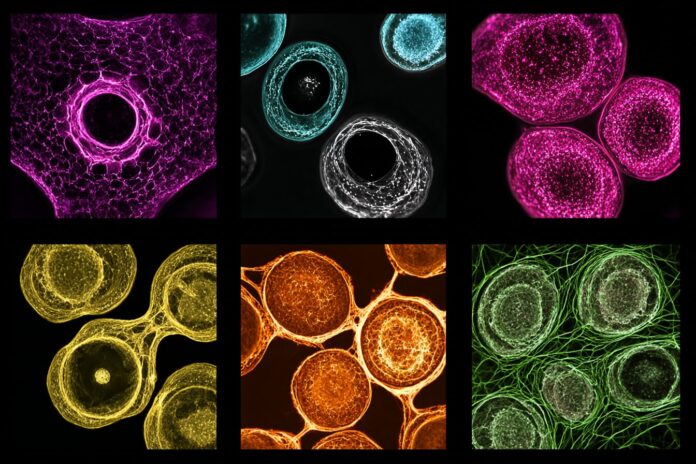The Dawn of AI-Driven Cellular Rejuvenation
Imagine a future where the intrinsic effects of aging are reversed at the cellular level. Thanks to recent breakthroughs, artificial intelligence (AI) is leading the charge in cellular rejuvenation research. Most importantly, AI allows scientists to transform years of painstaking manual experimentation into rapid, data-driven discoveries. As researchers harness computational power, they are now exploring mechanisms to render old cells youthful once more.
Because modern laboratory techniques integrate AI algorithms, tasks such as analyzing complex cellular imagery have become lightning fast. For example, cutting-edge imaging tools detect subtle changes in cell architecture that differentiate youthful and aged cells. Besides that, this approach has the added benefit of capturing data with an unprecedented level of precision and speed, paving the way for a new era in longevity science.
How AI is Transforming Anti-Aging Science
The fusion of AI and anti-aging research is revolutionizing the medical field. Traditionally, identifying molecules that could reverse aging was a manual and tedious process. However, AI now screens trillions of chemical compounds in virtual experiments, reducing what would have taken decades into a matter of months or even weeks. This accelerated timeline is a testament to technology’s ability to boost scientific research.
Moreover, sophisticated machine learning models are used to predict the interactions between molecules and cellular structures. Therefore, the typical trial-and-error method is rapidly being replaced by AI-driven precision. As noted in a detailed study by Diamandis, AI identifies promising rejuvenation pathways by simulating millions of biological scenarios. Consequently, younger cellular profiles are mapped with exactitude, providing a clearer path for potential therapies.
The Science Behind Rewinding the Cellular Clock
Because cells inherently suffer from the wear and tear of aging, reverse engineering this process has been a major scientific goal. Recent investigations have focused on targeting epigenetic pathways, where subtle genetic switches control the aging process. Most importantly, proteins like AP2A1 have been identified as potential master switches that can trigger rejuvenation in old cells. These proteins, once manipulated, have shown promising results in resetting cell behavior.
Furthermore, AI plays a crucial role in determining the most effective combinations of molecular compounds. For instance, research highlighted in a Longevity Tech blog post demonstrates how AI streamlines the discovery of rejuvenation agents. Therefore, using machine learning algorithms, scientists can now target cellular mechanisms with more accuracy, thereby reversing many aspects of cellular aging.
From Laboratory Breakthroughs to Clinical Promise
Recent laboratory breakthroughs have fueled optimism about the future of anti-aging treatments. In preclinical studies on mice, scientists have reversed key markers of aging by treating cells with AI-optimized protein cocktails. These studies have revived damaged cell functions, such as the restoration of retinal and neural cells, indicating remarkable potential for treating age-related degenerative conditions.
Because the integration of AI has not only accelerated the research process but also improved its accuracy, the transition from laboratory to clinical application is gaining momentum. As reported by NIH’s Common Fund, specific compounds have reset key biomarkers in mouse cells. Therefore, these advancements may soon facilitate the development of therapies aimed at preventing or even reversing age-related decline in humans.
AI’s Role: The Breakneck Pace of Discovery
Modern AI technologies are creating a paradigm shift in scientific research. Because AI can manage and analyze vast amounts of biological data, it executes millions of simulations in a single day. This capability permits the rapid discovery of compounds capable of rejuvenating cells. Most importantly, this fast-tracked research can significantly reduce the time needed for potential treatments to reach clinical testing.
Besides that, AI’s capacity to offer real-time analysis means that breakthroughs can be verified almost instantaneously. As illustrated by a recent video presentation, algorithms now detect micro-level changes in cell structure that were once imperceptible to human researchers. Therefore, AI provides an unequivocal advantage in optimizing research outcomes, leading to more robust and reliable treatments.
Looking Ahead: What This Means for Longevity
Because AI allows scientists to design highly targeted rejuvenation therapies, the dream of extending not only lifespan but healthspan is becoming increasingly tangible. As this technology continues to evolve, it is likely to become a cornerstone in combating age-related diseases and degenerative conditions. Most importantly, the promise of extending a youthful phase of health is gradually emerging from research labs around the world.
In conclusion, the question has shifted from whether it is possible to make old cells young again to how soon these breakthroughs can transform human health. Therefore, the integration of big data, molecular biology, and AI heralds a new era in longevity research. For more insights on this rapidly changing field, consider exploring additional research at Longevity Tech and Study Finds.
Expanding the Frontiers of Longevity Research
Because the longevity field is continuously evolving, interdisciplinary collaboration is key. Researchers are now linking insights from cellular biology, genetics, and AI to create comprehensive treatment strategies. Most importantly, this multidisciplinary approach promises not only to reverse aging at a cellular level, but also to enhance overall human health. For example, targeted therapies may soon help combat chronic illnesses, thereby extending not only life but the quality of life as well.
Moreover, initiatives such as those at Diamandis demonstrate how combining AI with robust biological research accelerates discoveries by millions-fold. Therefore, while clinical application awaits further testing, the strategic fusion of these advanced technologies is already redefining modern medicine.
Conclusion
In summary, AI is playing a pivotal role in transforming anti-aging research. Because it enables scientists to carry out millions of virtual experiments and swiftly identify effective rejuvenation agents, we are on the brink of monumental breakthroughs. Most importantly, overcoming cellular aging may soon become an everyday reality, revolutionizing both health care and longevity.
Therefore, as we look to the future, it is crucial to continue supporting innovation in this field. The convergence of advanced AI, molecular biology, and genetic research paves the way for a new generation of therapies aimed at rejuvenating cells and extending healthy human life.



